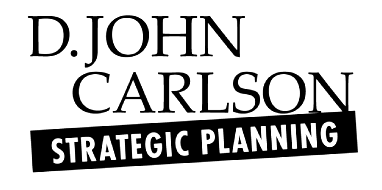I wrote previously about Collective Illusion and how it renders intuition one of the most dangerous tools in marketing. For many, the logical alternative is market research – or asking target market members what they want and how they might behave. And market research has its place – but it also has its limitations, including: […]
I wrote previously about Collective Illusion and how it renders intuition one of the most dangerous tools in marketing. For many, the logical alternative is market research – or asking target market members what they want and how they might behave. And market research has its place – but it also has its limitations, including:
- Despite what they might think, people often or indeed, most often, don’t know how they will behave in response to a stimulus.
- Despite their protestations, consumers are inclined to say what they think researchers want to hear or what might make them look good in the eyes of the researcher.
- Despite feeling self-aware, humans rarely know why they do what they do or what motivates them. Hence the growing demand for psychologists.
- Human beings are not rational, and market research is more likely to elicit a rational response – that may or may not hold up in real life.
In addition, response rates to surveys are in freefall, meaning that the same people are being surveyed repeatedly, and the sample is less representative of the market than is ideal. Textbooks are full of case studies highlighting strategies implemented following comprehensive market research that have led to failure for brands including Coke, Pepsi, McDonalds, and Ford. Here are some examples of where market research got it wrong:
- Market research told Coca-Cola that Pepsi was preferred in taste tests and that changing the flavour of Coke was essential to avoid losing market share. Wrong! New Coke failed!
- Market research has repeatedly found that consumers will save for retirement even when not mandatory. Wrong. While some 90% say they will, only 40% do.
- Market research has found widespread support for organ donation despite the data showing that most people will not donate unless an ‘opt out’ system is in place.
- When a group of people are asked if they have left a toilet without washing their hands, they say it does not happen. Observers, however, report very different behaviour.
- Just about every election in every Western country in the last ten years.
I am not suggesting that market research has no value but that it is often not the best way to gather reliable data. Increasingly, neuroscience or ‘neuro-marketing’ provides data collected directly from consumers’ brains – unfiltered and objective. While most businesses cannot afford neuro-marketing studies, human behaviour is sufficiently predictable that the insights documented by others can provide the data businesses need to make better decisions. Consumer insights, often gathered using neuro-marketing, are increasingly available to all businesses. You just need to know where to look. Other research techniques that can help include trial and error, experimentation, and strategic observation – all facilitated through co-creation.
Market research still has a role to play in marketing, and it is most certainly more reliable than intuition, but there are other data sources that business needs to focus on in 2023
D. John Carlson – Marketing Consultant Perth.


 Back
Back